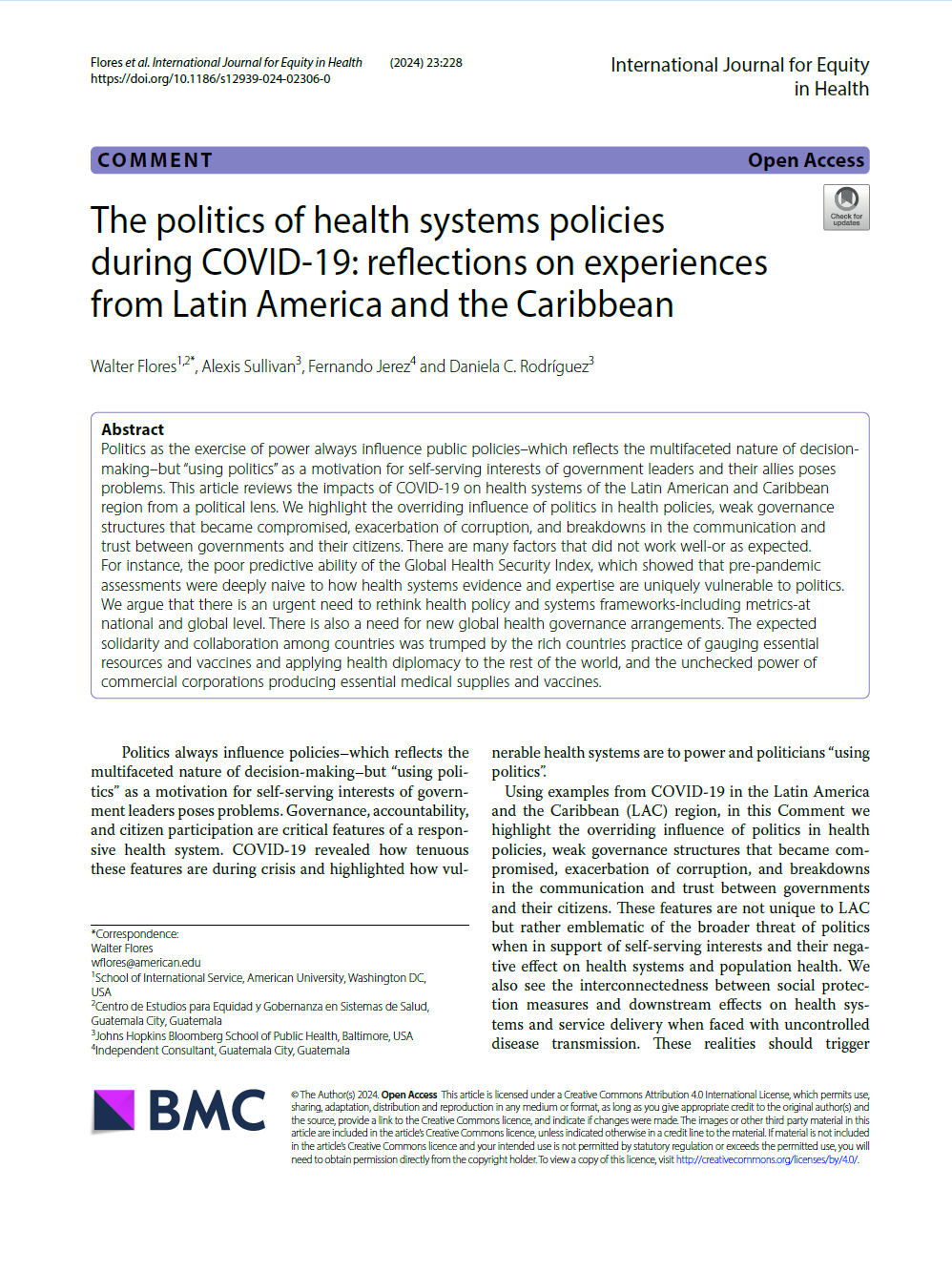
The Politics of Health Systems Policies During COVID-19: Reflections on Experiences from Latin America and the Caribbean
Date: November 2024
Author(s): Walter Flores, Alexis Sullivan, Fernando Jerez, Daniela C. Rodriguez
Publication type: Scholarly journal article
Published by: International Journal for Equity in Health
Politics as the exercise of power always influence public policies – which reflects the multifaceted nature of decisionmaking – but “using politics” as a motivation for self-serving interests of government leaders and their allies poses problems.
This article reviews the impacts of COVID-19 on health systems of the Latin American and Caribbean region through a political lens. We highlight the overriding influence of politics in health policies, weak governance structures that became compromised, exacerbation of corruption, and breakdowns in the communication and trust between governments and their citizens.
There are many factors that did not work well – or as expected. For instance, the poor predictive ability of the Global Health Security Index, which showed that pre-pandemic assessments were deeply naive to how health systems evidence and expertise are uniquely vulnerable to politics.
We argue that there is an urgent need to rethink health policy and systems frameworks – including metrics – at national and global level. There is also a need for new global health governance arrangements. The expected solidarity and collaboration among countries was trumped by the rich countries practice of gauging essential resources and vaccines and applying health diplomacy to the rest of the world, and the unchecked power of commercial corporations producing essential medical supplies and vaccines.
Walter Flores is Research Professor at American University School of International Service.
Alexis Sullivan and Daniela Rodriguez are at Johns Hopkins Bloomberg School of Public Health.
Fernando Jerez is an independent consultant in Guatemala City.
